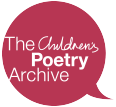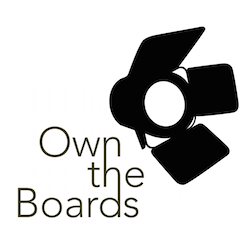 The best children’s literature not only entertains and delights but also teaches kids about themselves and their worlds. It asks them to think critically about what is confusing, mundane, or seemingly trivial. Andrew Motion, former Poet Laureate in the UK (1999-2009) and co-founder of both The Poetry Archive and The Children’s Poetry Archive, points specifically to poetry as facilitating this process. To him, poetry
The best children’s literature not only entertains and delights but also teaches kids about themselves and their worlds. It asks them to think critically about what is confusing, mundane, or seemingly trivial. Andrew Motion, former Poet Laureate in the UK (1999-2009) and co-founder of both The Poetry Archive and The Children’s Poetry Archive, points specifically to poetry as facilitating this process. To him, poetry
is a representation of life, which is also a kind of life in itself – a self-sufficient delight, which is simultaneously a way of looking forward and preparing to meet the future; a confirmation of self, which nevertheless allows the growth of sympathies with others.¹
Children must spend time puzzling out the interplay between a poem’s form and content; they must slow down, think, and ponder – again and again. As Motion suggests, this process lends itself to considering complex subject matter, building critical thinking skills and emotional intelligence.
The Children’s Poetry Archive is a rich and versatile online resource for finding such works and learning more about the poets that write them. The site provides a range of features, including poet Q & A, guided tours, recordings of authors reading their poems, thematic/genre-specific categories, and a personal archive feature. The organization is also making available its text offerings in Braille. Even further, The Poetry Archive’s “Teach Poetry” section includes resources (lesson plans and poem groupings) that correlate with its partner site. While these features are of immediate interest to teachers and parents, the site as a whole is also appropriate for computer-savvy children to peruse.
Included poems appeal to children of all ages, from the very young to adolescents. Furthermore, the range of poems lends itself to diverse usage within the classroom and in other educational and therapeutic settings. Many poems explore complex emotions and themes, about which children are still learning: family, friendship, bullying, disability, and social class, for instance.
Listen to a few of our favorites:
John Foster’s “Four O’Clock Friday”
Andrew Fusek Peters and Polly Peters’s “Bruises Heal”
Berlie Doherty’s “Playgrounds”
Berlie Doherty’s “Kieran”
Jackie Kay’s “Brendon Gallacher”
Charles Causley’s “Timothy Winters”
See other poems you like? Let us know in the comments section. Teach poetry to young students? Tells us about your selections and strategies.
¹ Styles, Morag. “The Case For Children’s Poetry.” U of Cambridge, 11 Oct. 2011. Web. 26 Jan. 2015.
